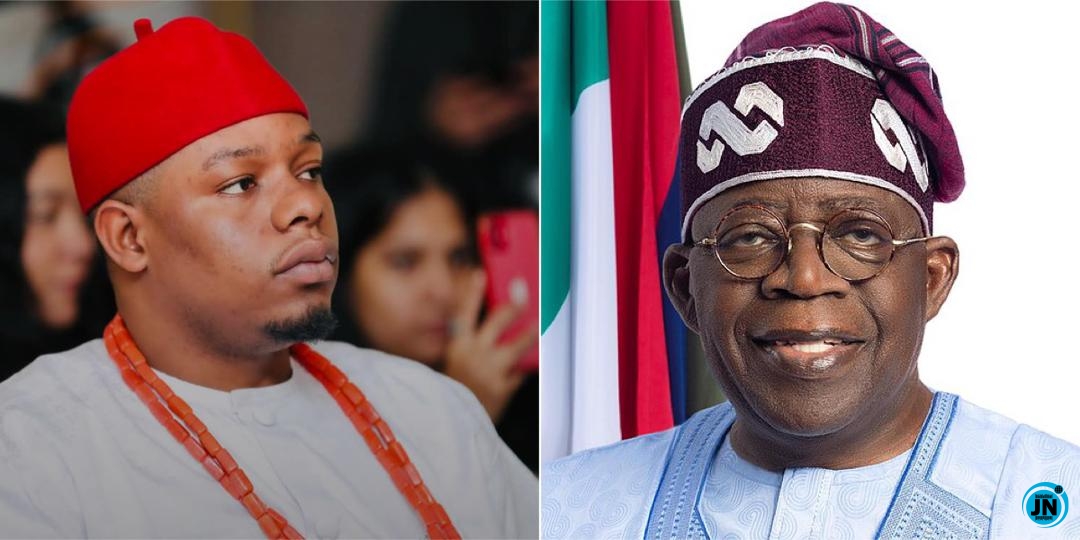
Prominent chieftain of the All Progressives Congress (APC), Chief Obidike Chukwuebuka, has once again stirred public discourse with a strong appeal to Nigerian youths, urging them to remain loyal and supportive of President Bola Ahmed Tinubu’s administration. According to him, working against Tinubu’s government is not only “unpatriotic” but also “spiritually dangerous,” as he believes that divine retribution awaits anyone who deliberately sabotages the progress being made under the current administration.
Obidike, who doubles as the Chairman of Bidiks Nigeria Limited and Clarivo Oil & Gas Limited, did not mince words as he highlighted what he described as the President’s visible commitment to Nigerian youths. He praised Tinubu for rekindling hope through youth-centered policies, visionary leadership, and strategic appointments that have given young people greater inclusion in governance than at any other time in Nigeria’s democratic journey.
Youth Inclusion and Strategic Appointments
In his remarks, Obidike emphasized that President Tinubu has deliberately placed young Nigerians at the forefront of national development, pointing to key appointments as proof of his commitment. He listed individuals such as Dr. Jamila Bio Ibrahim, Minister of Youth Development; Ayodele Olawande, Minister of State for Youth Development; Khalil Halilu, Executive Vice Chairman of NASENI; Zacch Adedeji, Chairman of the Federal Inland Revenue Service (FIRS); and Delu Bulus Yakubu, National Coordinator of the National Social Investment Programmes Agency (NSIPA).
“These are not just symbolic placements,” Obidike stressed. “These young leaders are actively driving reforms and innovations in their respective offices, proving that this government is serious about giving the youth a voice, a platform, and a future.”
Policy Impact and Development Programs
Beyond appointments, Obidike drew attention to key policies and initiatives such as the Student Loan Act—designed to make higher education more accessible—and the 3 Million Technical Talent (3MTT) programme, which is set to train millions of Nigerian youths in digital and technology-driven skills by the year 2027. He described these initiatives as groundbreaking, arguing that they demonstrate Tinubu’s clear intent to prepare the younger generation for leadership, innovation, and participation in the global economy.
He argued that critics who downplay these achievements or attempt to derail them are “enemies of national progress” and urged young Nigerians not to allow themselves to be manipulated by partisan politics or individuals seeking to exploit their frustrations.
Warning to Nigerian Youths
In what has become the most controversial part of his statement, Obidike declared that any youth who knowingly works against President Tinubu’s government would face not only political consequences but also spiritual ones. “God will not forgive any youth who sabotages this vision out of ignorance or mischief,” he warned, insisting that supporting Tinubu’s efforts is both a moral and spiritual obligation.
He explained further: “President Tinubu deserves the trust of young Nigerians. He is not just paying lip service; he is actively creating a future where our generation can thrive. Those who try to frustrate this progress are not just opposing the President, but they are standing in the way of divine destiny. Such acts are spiritually dangerous.”
Public Reaction and Debate
Chief Obidike’s strong remarks have since generated heated conversations among Nigerians, both online and offline. Supporters argue that he is right to acknowledge Tinubu’s effort and to call for collective responsibility from youths, while critics claim that invoking divine punishment for political dissent is an extreme approach. Nonetheless, his statement has further fueled the ongoing national debate about the role of youth in governance, accountability in leadership, and the intersection of politics with spirituality in Nigeria.
Despite the controversy, Obidike concluded his message with an appeal for unity: “This is the time for Nigerian youths to rise, not to destroy but to build, not to sabotage but to innovate. The future belongs to us, and with President Tinubu’s vision, that future is already within our grasp.”